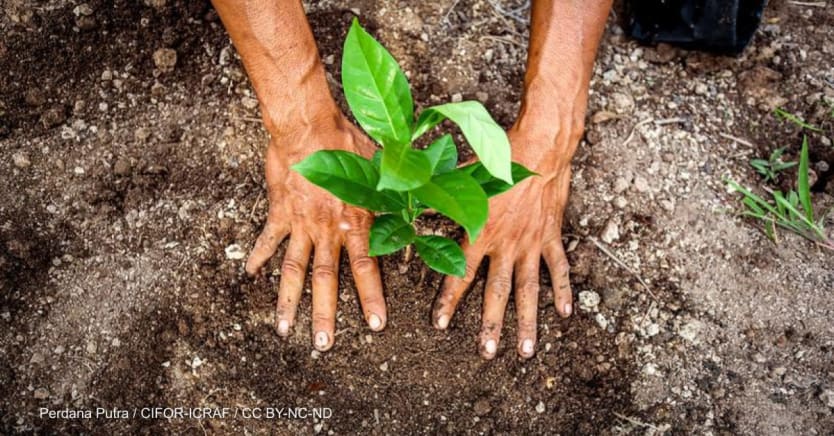
In my 40-year career in environmental politics, I cannot recall a higher-stakes period than the coming two months.
Back-to-back summits on climate change and biodiversity will offer the world a unique chance to come together on two of the most critical issues of our time — climate and biodiversity. Change is possible. But given the size of the crises, we must use the coming two months to be brutally honest about where we are and where we must get to.
Before COP 27, join Devex and a panel of experts, including Moazzam Malik of World Resources Institute, to get ahead of the discussions and hear about the key issues to watch. Register now.
COP 27 on climate to be held in Sharm el-Sheikh, Egypt, in November and COP 15 on biodiversity to be held in Montreal, Canada, in December are great opportunities for countries to approach both issues in a comprehensive way rather than tackling them on separate fronts. A united approach is essential to ensure that the decisions made at both events pull in the same direction.
The goals that negotiators set and refine at these two conferences of the parties will shape policy, investment, and community planning for the long term.
Over the next eight weeks, we need to seek unity on the one threat that connects us all — the well-being of our planet.
History shows what we can achieve when we unite behind clear goals.
Take the 1987 Montreal Protocol. Not only did this historic agreement to reduce ozone-depleting chemicals help shrink the hole in the ozone layer, according to recent research, it also slowed the pace of global warming. Without the Montreal Protocol, the planet would be facing a further 2.5 degrees Celsius temperature rise by the end of the century.
Phasing out funding for damaging industries and ending perverse incentives will create fiscal space for governments to invest in the planet.
—Efforts to change the energy mix are also yielding results. The International Energy Agency said last month that record growth in renewables and electric vehicles means that emissions are on track to increase by less than 1% this year, defying expectations for a surge.
There is also a growing recognition of the urgent need to transform global agriculture and aquaculture systems in support of the Paris Agreement climate goals, while still feeding a population forecast to hit 9.7 billion by 2050.
Big shifts are also needed in how we grow, transport, nourish, and package the food we eat, given the world’s food systems are responsible for one-third of human-made global greenhouse gas emissions and 70% of freshwater use, and drive 90% of tropical deforestation and ecosystem destruction.
But making these and other changes last requires more than government pledges. We must involve young people, businesses, and marginalized groups, both to increase buy-in and to unlock knowledge and ideas at the community level.
We must also change the orientation of global financial flows, realigning public and private spending priorities with our climate objectives. We can no longer afford to maintain a status quo that funnels $1.8 trillion in subsidies to commercial agriculture and fossil fuel producers each year.
One item that has emerged as a barrier in both the climate and biodiversity negotiations is how we finance change. With high-income economies under increasing strain from global inflation and low- and middle-income ones also suffering from rising debt and currency devaluation, how to pay for needed action is a major sticking point.
Getting past this will require all countries to prioritize the same thing: healing the world and creating the conditions for a healthy future. This needs to be the thread connecting every discussion on every topic at the upcoming COPs, as well as in national capitals.
It is in all of our self-interest to allocate financing in a coherent way in support of these goals — stopping public support for oil, gas, and coal, as well as activities that cause deforestation.
Phasing out funding for damaging industries and ending perverse incentives will create fiscal space for governments to invest in the planet. We must also mobilize more resources from the private sector and philanthropic organizations, which have significant contributions to make in this space.
I have spent my entire career working to ensure multinational environmental negotiations take us in the right direction. My work in national politics, in international diplomacy, and in civil society has taught me that we have the knowledge and tools we need to heal our planet.
What we need is to work together on the issues that unite us — with multilateralism at the center. Addressing the many challenges faced by the global environment requires every country at the table and engaged in a consistent way. This is why the upcoming COPs are so critically important, and why I will be looking to them for ambitious outcomes reaching across topic areas and sectors.
The state of the planet has already pushed us well beyond business as usual when it comes to managing environmental crises. We have an opportunity as 2022 comes to a close to define this as an inflection point for nature that takes us where we need to go.








